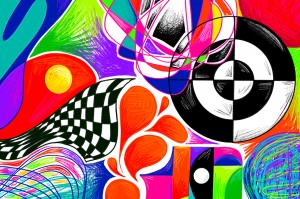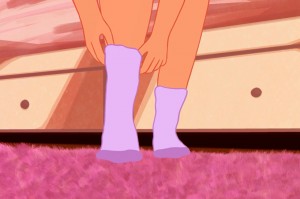The Shining: A Visual and Cultural Haunting – In Conversation with Craig Oldham
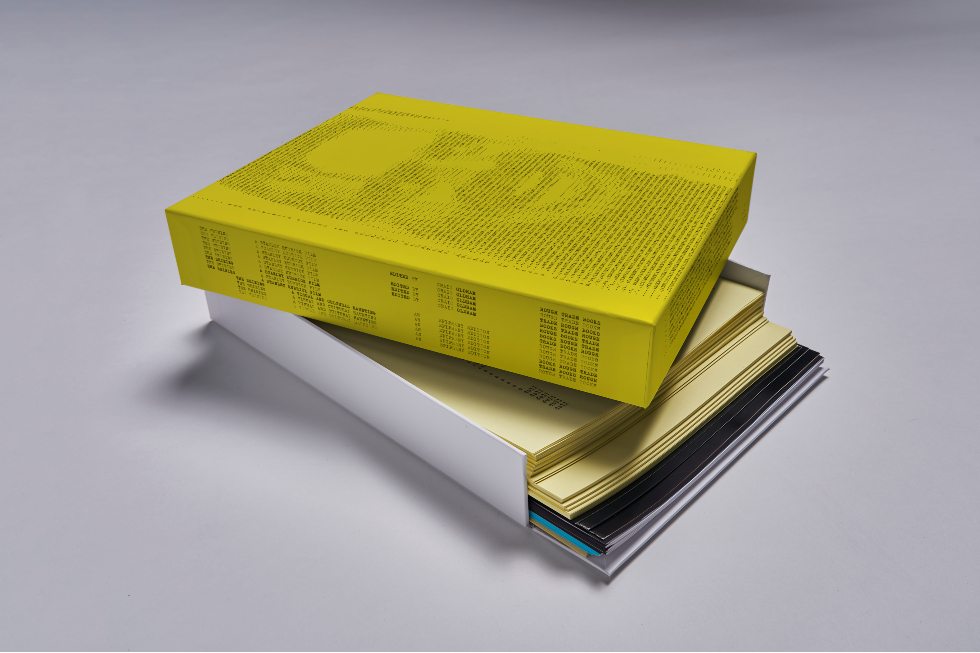
“I think my favourite remark of Kubrick’s [is] about the belief in ghosts as a fundamentally optimistic point of view.” Ahead of a new publication addressing the enduring fascination with The Shining, we caught up with Rough Trade Books’ Craig Oldham…
So steeped in Stanley Kubrick’s adaptation of The Shining is the cultural consciousness that last new year, people – me included – were sharing a slightly edited version of the photograph shown at the very end of the film. The original, inscribed in flowing handwriting with the legend ‘Overlook Hotel July 4th Ball 1921’, had been doctored to read ‘Overlook Hotel New Year’s Eve, 1921’. So powerful is the textured lore surrounding the film that, even with an incorrect date (and more than forty years on), it is meme worthy.
But The Shining has always attracted more than its fair share of mythology among fans. See 2012 documentary Room 237, which addresses the film’s many supposed enigmas, as proof, if it were needed. Still, fascination persists, so news of a new publication exploring the film’s cultural legacy got our attention. We spoke with Craig Oldham whose book, The Shining: A Visual and Cultural Haunting, will be out later this year.
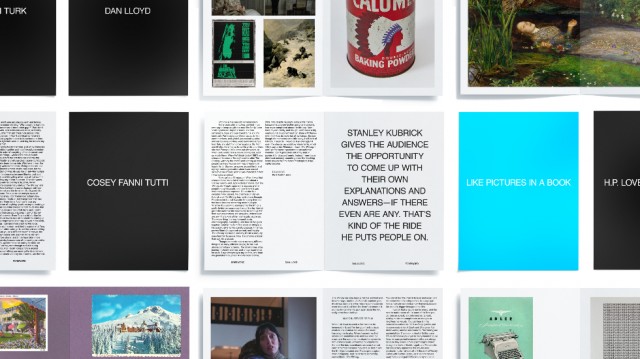
The Double Negative: This is the second book in your Epiphany Editions. Was it always going to be on The Shining? If so, why/why now?
Craig Oldham: We were always going to do The Shining, but it wasn’t always going to be the next one after They Live. We had a few others underway at the same time, but then the pandemic hit and forced us all into isolation, and that made it much more pertinent to pursue. Pulling at threads in the film – isolation as mentioned, but also domestic violence and domestic abuse, mental health, patriarchy and such – it felt they only served to cement that decision really.
TDN: You’ve made some really interesting design decisions around the book’s format – can you talk us through your thinking?
CO: Firstly, with the Epiphany Editions we are aiming to replicate the fictional books appearing in their respective films, so we work with what we see on screen. What we see in The Shining, and what most remember, is the reveal scene where Wendy leaves through a series of loose typed sheets of yellow paper (actually script paper) which are kept in the ream.
In other scenes we see that this box has been modified, presumably by Jack, with a torn down lip at the box’s base so paper can be easily moved. From that we have taken our design lead and license, sourcing the typewriter to replicate the typeface, taking the almost Concrete Poetry aesthetic of the pages to give form to the essays and of course replicate All Work And No Play Makes Jack A Dull Boy in the exact form they appear on screen.
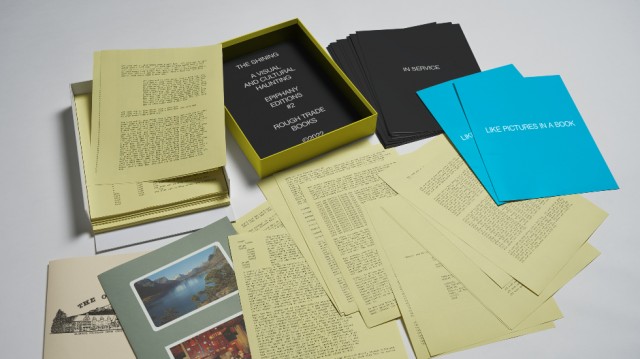
From that, I was almost obsessed with having no binding in the book, having it completely loose, but still functioning as a book. So each piece is independent but collectively can be re-ordered, re-interpreted, edited, added to, and so on in a circular motion which makes the book echo the eternal reoccurrence that the film hints at in its ending. That lead and influenced so much in terms of the format.
TDN: What does the book add to conversations around The Shining?
CO: We’ve tried to address the gender imbalance on the film by heavily incorporating female criticism, but that is an issue across all critical writings on Kubrick not just The Shining. We have also, consciously or unconsciously, slanted a lot more on the visual and design culture of the film and the production, bringing in ephemera and visual art into the reading of the film which largely focuses on the film as a text.
But personally, for me, the piece that speaks the most to me which was a thread lesser pulled, at least in my own research, was Cosey Fanni Tutti’s piece where she discusses the film as domestic abuse, and domestic violence as a survivor, making really interesting parallels with film tropes such as the final girl in that context. I think that’s really relevant and, in a way, refreshing because it moves away from the male fascination and is another side to the argument of the film being about a male monster.
TDN: You’ve secured a rare interview with Shelley Duvall. Was it important to include her voice (especially given the frequent suggestions of her terrible on set experience)?
Absolutely. And we feel it’s such a coup for the book to have Shelley involved and her insights and validity as well as her voice are important. It’s a sensitive discussion to have but we also felt it’s important to not have that experience dominate the discussion as we were also really interested in her pioneering work as a producer and being a woman in that industry in the 70s and 80s.
TDN: Critics regularly laud the movie, while author of the source material, Stephen King, thought it “maddening, perverse and disappointing”. Presumably you’re in the former camp?
CO: To be honest, I flit between the two. I can find it immersive and its perplexities compelling at times, but equally I can be left cold and not really frightened (which is a problem for any horror film). I can understand why King doesn’t appreciate the film, but I think, again if I’m honest, and given my research into the film’s pre-production, a lot of King’s animosity towards the film involves ego not necessarily the film as a work. Plus, you only have to watch the TV versions directed by Mick Garris which King was heavily involved in, to see that perhaps King’s take on what makes a good adaptation can be questioned and criticised just as heavily.
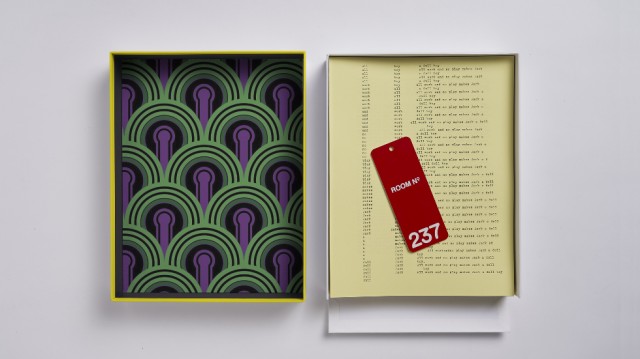
TDN: What’s your favourite myth or belief about Kubrick’s take on horror and the nature of evil?
CO: I think my favourite remark of Kubrick’s was one he said in discussion with Michel Ciment (and Jack Nicholson) about the belief in ghosts as a fundamentally optimistic point of view, as it implied a continuation of existence and death not being the end.
TDN: Finally, in his study of the film, Roger Luckhurst remarked “I, too, have been tempted to stay in the Overlook for ever and ever.” Have you ever considered checking in?
CO: Indeed, but let’s be honest, there’d only be one room I’d like to stay in…
As told to Mike Pinnington
Support The Shining: A Visual and Cultural Haunting’s Kickstarter campaign




